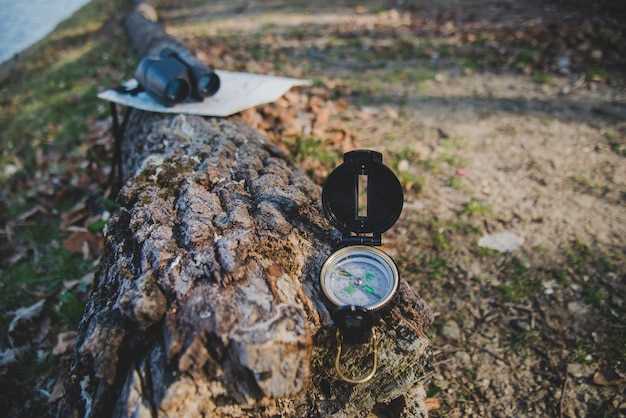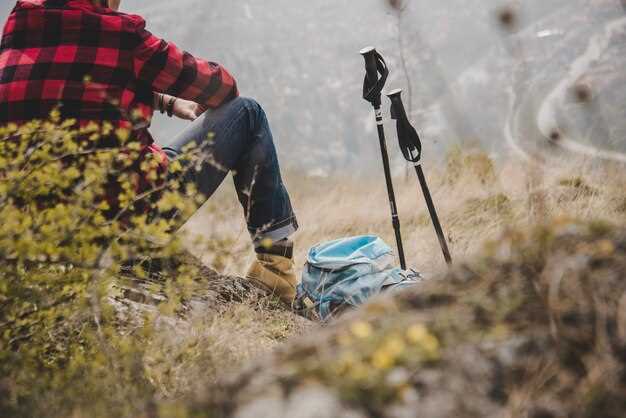
Best GPS units for remote hunting trips

For hunters embarking on remote adventures, the importance of reliable GPS navigation cannot be overstated. In the wild, where trails are often unmarked and terrain can change drastically, having a dependable GPS device is essential for not only locating your destination but also ensuring your safety. The right navigation tool can make the difference between a successful hunt and a frustrating experience.
The wilderness presents countless challenges, from unpredictable weather to rugged landscapes. Therefore, choosing a GPS device that caters specifically to the needs of hunters is crucial. These specialized devices offer features like topographic mapping, waypoint marking, and wildlife tracking, providing invaluable assistance in remote areas where traditional navigation might fall short.
In this article, we will explore some of the top GPS devices available for hunters, highlighting their unique features and benefits. Whether you are a seasoned pro or a novice in the field, understanding these tools will enhance your navigation skills and enrich your hunting experiences. Let’s dive into the essentials that every remote hunter should consider when selecting their GPS equipment.
Choosing the Right GPS Device for Remote Hunting Environments

When it comes to remote hunting, having a reliable GPS device is crucial for effective navigation and safety. With various options available, hunters must consider several factors to choose the right model that meets their specific needs.
The first aspect to evaluate is the device’s accuracy. Precision is essential in remote environments where getting lost can lead to dangerous situations. Look for GPS units that offer high sensitivity and use multiple satellite systems such as GPS, GLONASS, and Galileo to enhance positional accuracy.
Next, battery life is a vital consideration. Hunting trips can often extend over several days, making it important to select a GPS device with a long-lasting battery. Opt for devices with power-saving features or replaceable batteries to ensure you can navigate continuously without running out of charge.
Durability is another key factor. Remote hunting can expose devices to harsh weather conditions, including rain or extreme temperatures. Therefore, it is advisable to choose GPS units that are rugged and waterproof, ensuring they withstand the challenges of outdoor adventures.
Additionally, ease of use and features should influence your decision. Look for devices with intuitive interfaces and clear displays that allow for quick navigation. Important features may include waypoint marking, tracking capabilities, and topographic maps that provide detailed geographical information.
| Feature | Importance |
|---|---|
| Accuracy | Ensures precise navigation in unfamiliar terrains |
| Battery Life | Supports extended trips without the need for frequent recharging |
| Durability | Withstands harsh weather and rugged conditions |
| User Interface | Facilitates quick and effective navigation |
| Additional Features | Enhances overall navigation experience with tools like maps and waypoints |
By assessing these crucial features, hunters can select the best GPS device to aid in navigation during their remote hunting ventures, ensuring a safer and more enjoyable experience.
Key Features to Look for in Hunting GPS Devices
When selecting a GPS device for hunting, certain features can significantly enhance your navigation experience and overall success in the field. First and foremost, look for robust mapping capabilities. A quality GPS should provide detailed topographical maps that include terrain types, water sources, and game trails, which are crucial for effective navigation.
Another important feature is the battery life. Extended battery life is essential for lengthy hunting trips, especially in remote areas where charging options are limited. A device that offers a battery-saving mode can help ensure your GPS remains operational throughout your adventure.
Durability is also critical. Select a GPS that is rugged and water-resistant, capable of withstanding various weather conditions and rough handling common in hunting environments. This resilience allows you to focus on navigation without worrying about damaging your device.
Additionally, consider the device’s user interface. A GPS with a clear, easy-to-read display and intuitive controls will allow for quick adjustments while on the move. Look for features such as touchscreen responsiveness and customizable settings to personalize your navigation experience.
Incorporating offline maps is another key aspect to consider. Hunting often takes place in areas with limited cellular service, so a GPS that allows you to download maps beforehand can be invaluable for navigation.
Furthermore, explore devices that offer waypoint management. The ability to mark and save key locations, such as deer stands or water holes, can enhance your navigation efficiency. Many hunting GPS devices also allow you to share waypoints with fellow hunters, fostering teamwork and collective strategy.
Lastly, GPS devices with integrated compass functionality can improve your navigation accuracy, especially in dense woods or during low visibility conditions. This additional feature complements traditional map reading skills, ensuring you’re always on the right path.
Best GPS Navigation Apps for Hunters in the Field
In the remote wilderness, where traditional navigation methods may fail, hunters rely on advanced GPS navigation apps for accurate location tracking and route planning. These apps cater specifically to the needs of hunters, offering features that enhance safety and efficiency during outdoor adventures.
1. OnX Hunt is a leading GPS application designed for hunters. It provides detailed topographic maps, land ownership information, and offline capabilities. Users can mark waypoints, track their routes, and share locations with peers to ensure a successful hunting experience.
2. HuntStand is another excellent navigation app tailored for hunters. It combines GPS technology with tools for mapping hunting locations, tracking game movement, and organizing hunting trips. The app’s weather integration and property boundaries make it a comprehensive resource.
3. Gaia GPS offers robust navigation features suitable for hunters seeking wilderness exploration. This app provides high-quality maps, customizable layers, and offline access. With its extensive library of trails and routes, hunters can confidently navigate remote areas.
4. Trimble GPS Hunt emphasizes precision navigation for serious hunters. With its advanced mapping capabilities and real-time tracking, users can plan their hunts effectively, ensuring they stay on course and return safely. The app also includes tracking for game locations.
5. Scoutlook Hunting stands out with its weather tracking and wind direction features, which are critical for successful hunts. Its mapping capabilities allow users to create custom locations and share them, enabling efficient coordination among hunting groups.
These GPS navigation apps are essential tools for hunters in the field, providing accurate navigation, strategic planning, and safety features. With their help, navigating challenging terrains becomes simpler, allowing hunters to focus on their pursuit while feeling secure in unfamiliar landscapes.
How to Maintain GPS Accuracy in Challenging Terrains
Maintaining GPS accuracy in remote hunting adventures can be a challenge due to various factors like dense forests, mountainous regions, and unpredictable weather. Here are essential tips to ensure effective navigation and reliable GPS performance in such terrains:
- Choose the Right Device: Invest in a high-quality GPS device specifically designed for rugged environments. Look for models with enhanced satellite reception and robust build quality.
- Update Maps Regularly: Ensure that your GPS device has the latest maps and software updates. Outdated maps can result in navigation errors, particularly in areas with rapidly changing landscapes.
- Use External Antennas: If possible, use external antennas to improve signal reception. These devices can help maintain accuracy, especially when you are surrounded by tall trees or steep terrain.
- Calibrate Your GPS: Regularly calibrate your GPS device to improve accuracy. Follow the manufacturer’s guidelines for calibration, which typically includes aligning signals and confirming your position.
- Limit Obstructions: When navigating through challenging terrains, try to minimize obstructions between your device and the sky. Find open areas, and avoid deep valleys or canyons where signals may be blocked.
- Utilize Multiple Navigation Aids: Don’t rely solely on GPS for navigation. Use traditional methods such as maps and compasses alongside your GPS device for better accuracy and reassurance.
- Refresh Data Frequently: In areas with poor satellite visibility, manually refresh your GPS data often. This can be done by stopping for a moment to allow the device to reconnect to satellites.
- Monitor Battery Life: Keep an eye on your GPS device’s battery life. A low battery can compromise performance. Carry extra batteries or a portable charger to ensure consistent functionality.
- Be Aware of Environmental Effects: Understand how weather conditions and atmospheric interference can affect GPS performance. Rain, heavy cloud cover, and solar activity can all play a role in signal accuracy.
By following these practices, you can enhance navigation reliability and ensure that your GPS device remains accurate, even in the most challenging terrains during your hunting adventures.
Integrating GPS with Other Hunting Technologies
In the evolving landscape of hunting, the integration of GPS devices with other technologies has transformed how hunters approach their adventures. This synergy enhances navigation, accuracy, and overall hunting success.
Some key technologies that can be integrated with GPS for improved hunting experiences include:
- Smartphone Applications: Many apps provide real-time maps, weather updates, and location sharing. By linking your GPS device with these applications, hunters can access comprehensive information on their mobile devices.
- Trail Cameras: GPS-enabled trail cameras can track wildlife patterns and locations. When combined with GPS navigation, hunters can more effectively target areas where animals are likely to be found based on history.
- Weather Monitoring Systems: Connecting GPS with weather tracking tools helps hunters plan their trips. Accurate weather data ensures that navigation remains safe and efficient under varying conditions.
- Drone Technology: Drones equipped with GPS can scout large areas from above. This technology allows hunters to analyze terrain and vegetation, leading to improved navigation and hunting strategies.
- Electronic Game Calls: Some electronic calls can use GPS to determine the best locations for attracting specific game. This technology enhances a hunter’s ability to navigate effectively during a hunt.
When these technologies are integrated, hunters benefit from:
- Improved Efficiency: Reducing time spent searching for game means more time spent hunting.
- Enhanced Safety: Access to maps and real-time location sharing helps prevent getting lost in remote areas.
- Data-Driven Decisions: Use of statistics and historical data gathered from different technologies allows for calculated hunting strategies.
By integrating GPS with various hunting technologies, hunters can optimize their navigation and increase their chances of a successful adventure.
Real User Experiences: Reviews of Top Hunting GPS Models

When it comes to enhancing the hunting experience, reliable GPS devices play a pivotal role for hunters seeking both efficiency and safety. Here are firsthand accounts from enthusiasts who have tested some of the top GPS models for navigation in remote hunting locations.
Garmin Alpha 200i: One hunter shared that the Garmin Alpha 200i provided exceptional performance during his trip in mountainous terrain. The device’s comprehensive mapping features and real-time tracking of his hunting dogs were particularly praised. He mentioned, “The combination of GPS and inReach technology allowed me to communicate even when I was off the grid. This feature is invaluable for safety and coordination in the wilderness.” The intuitive interface made navigation straightforward, ensuring that he never lost his way.
Magellan TRX7: Another user focused on the Magellan TRX7, highlighting its off-road navigation capabilities. “This GPS unit is tailored for hunters,” he said. “The preloaded hunting points of interest made it easy to find the best spots.” He noted the large touch screen was easy to operate even with gloves on, which is a must in cold weather. His only critique was the need for occasional firmware updates to keep the device performing at its best.
Garmin Montana 750i: A seasoned hunter recounted his experience with the Garmin Montana 750i, noting its versatility. “The ability to switch between landscape and portrait mode made it easier to read while on the move,” he explained. The GPS offered a solid battery life, even with frequent use of the camera function. His best takeaway was the detailed topographic maps, which significantly improved his navigation in unfamiliar territories.
Bushnell BackTrack Mini: For those on a budget, one user recommended the Bushnell BackTrack Mini, stating that it is simple yet effective. “This device is super easy to use and great for marking my starting point,” he commented. While it lacks some advanced features, the straightforward navigation was praised for keeping his outings focused on the hunt rather than technology. He highlighted its compact design, ideal for slipping into a pocket without adding bulk.
Suunto Traverse Alpha: Lastly, a user shared his positive experience with the Suunto Traverse Alpha, combining GPS functionality with wristwatch convenience. “It tracks my hunting routes and allows me to monitor my fitness levels,” he remarked. The automatic weather updates provided a layer of safety that he found beneficial during unpredictable conditions. Overall, he appreciated having a multipurpose device that seamlessly integrated into his outdoor activities.
These reviews underscore the importance of selecting the right GPS device tailored to individual hunting styles and requirements. Each hunter’s experience demonstrates how specific features can significantly impact navigation and overall adventure quality in the great outdoors.
Copyright © 2026 - bullmtnarchery.com. All Rights Reserved.